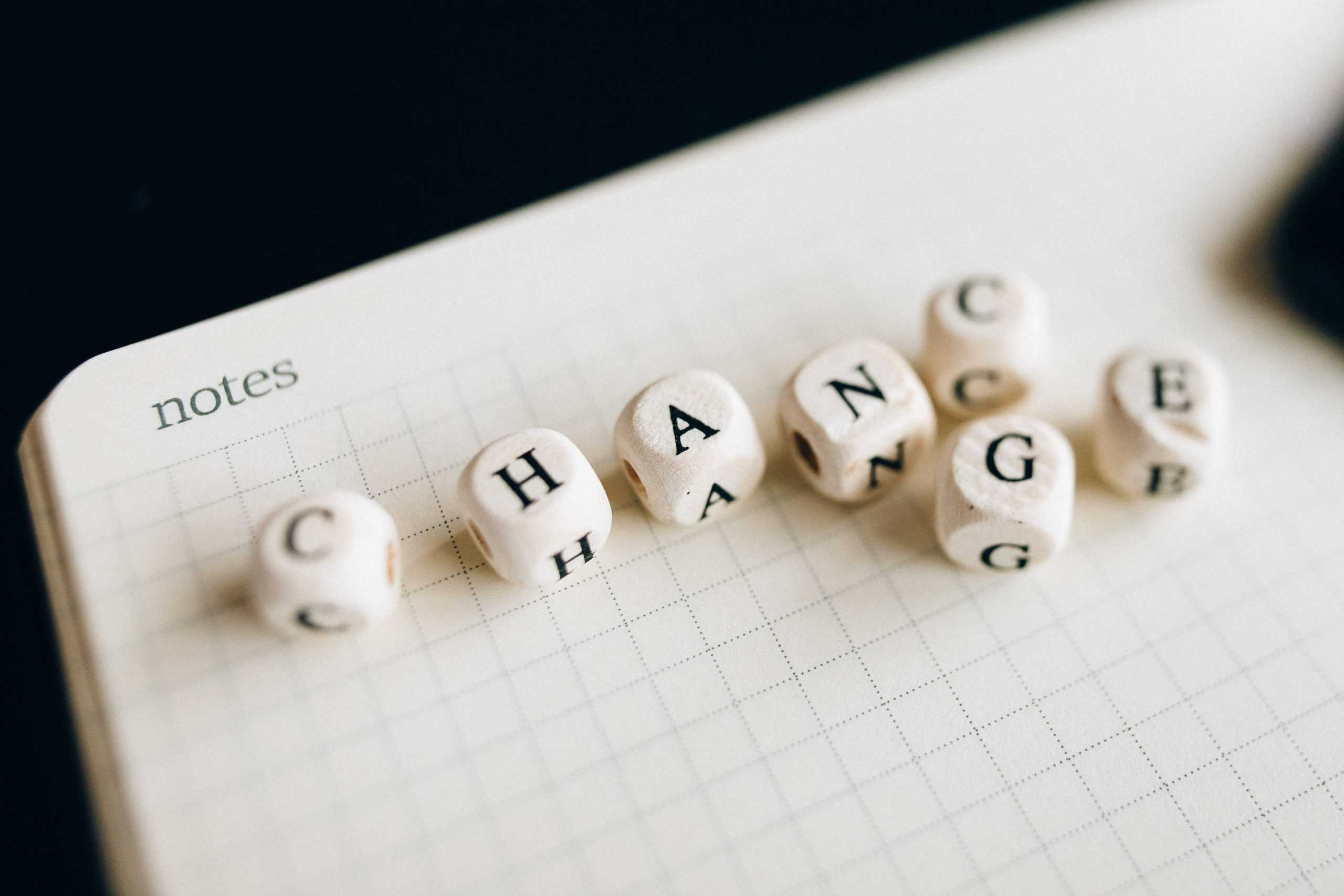Recovery from anorexia nervosa is complex.
Choosing recovery takes surrendering all you know in exchange for something which feels like actual hell.
Recovery takes doing the hard things when they’re hard and long before you know doing them will pay off.
It will literally take everything you’ve got (plus some).
If your plan is to recover one day then you’ve got to face it sometime.
There is no avoiding this.
There is no denying this.
There is no short cut.
And there is no point pretending otherwise.
But!
Complex does not mean impossible.
Please do not let the complexity lead to overwhelm, inaction and undertreatment.
Here, in this post I am going to focus on one component of recovery.
One crucial and unavoidable part.
A part that while it gets a lot of attention that attention often comes with little clarity or understanding and that is what recovery takes in terms of food.
Yep, we’re going there because while your exact needs will be individual as a dietitian I see people cutting themselves short constantly because they believe they “shouldn’t” be eating “so much” whereas the reality is you definitely should be (plus some).
The truth is you can see the best psychologist, psychiatrist, dietitian, doctor, coach, hypnotherapist, neurolinguistic programmer and do all the psychological work in the world for ever (and ever and ever and ever) but until your brain is supported with the energy and nutrients it needs (aka food) it is always going to be a battle.
Until you are out of starvation and malnutrition life is always going to be confusing and exhausting.
Until you meet your most fundamental biological need for nourishment, you’re not going to have access to the totality of who you are.
In a nutshell the food is important.
So, if you’ve ever wondered what you “should” be eating in recovery i.e. what it actually takes now’s your chance to find out.
If you find numbers triggering or if you’re going to use this as a guide to eat less than please do not read.
If on the other hand you’re after a frank account of what it takes in terms of foods and kilojoules (calories) to gain weight (and actually maintain it this time round) because you’re committed to this recovery thing then do read on.
Why The Food Matters

The food matters because starvation and malnutrition affect every system and every cell of your body.
It’s not the intention of this post to go into any detail on the ways malnutrition and starvation affect your body as this is a novel in and of itself, here I mainly want to explain a little of how starvation and malnutrition affect your brain and why food truly is one of the keys to recovery.
If you don’t address eating and renourishment alongside doing the mental work, you’re literally not going to be able to do the mental work to the level that will truly set you free.
Your brain simply can’t.
This is not opinion or pessimism, it’s biological fact; your brain needs a lot of fuel to function let alone do the work of repair, recovery and growth.
Food is how we get our energy and energy is the currency of life.
You can have all the money, all the time and all the blessings in the world but if you don’t have the energy you’re not going to see it, you’re not going to feel it, you’re not going to do what it takes to pursue your dreams and you’re sure as hell not going to enjoy the passion and spontaneity of life.
Why? Because the part of your brain most responsible for your humanness and conscious volition is your prefrontal cortex and when you are malnourished, when there is limited energy coming in or always “just enough” your body does not prioritise this part of your brain. It prioritises the more ancient parts concerned with regulating the functions of keeping you alive.
When you are starving, and malnourished energy is diverted to your brain stem and vital organ systems and everything is geared towards keeping you alive in the now because who knows if you’ll have a future (starvation leads to one place if not corrected – death – and your brain knows this).
Food matters because it is the means by which you will begin to reverse the damage and turn on your capabilities and open up the possibility to go further in life than you can probably yet imagine.
As I said there is no avoiding it because there is no alternative.
At some point you’re going to have to do it because recovery doesn’t happen through understanding, knowledge, analysing, planning, talking about or gaining more insight it happens when your actions change.
What Should I Be Eating?

3500-4000 calories (14 630-19 200) a day as a minimum starting point* or 70-100kcal/kg/day to (theoretically) achieve a weight gain of 1-1.5kg a week1 (these figures are calculated from inpatient treatment and most likely more is necessary if you are outpatient to take into account the energy cost of any exercise/movement).
Ideally this should be divided through 3 main meals plus 3 snacks spread across the day because not only is the amount of energy you eat in a day important but also the regularity of those meals is important.
Regular meals help to keep your blood sugar (BGLs) stable, regulate your mood and allow your mind and body the reassurance that you’re not going to starve them again.
*I cannot emphasise enough that all of this is intended as a guide only.
If you are in recovery or contemplating recovery from an eating disorder, wanting to help someone you love recover then please, please, please do not go it alone.
Refeeding is traumatic and it also has the potential to be dangerous to the point of life threatening if you have been eating inadequately for a time and suddenly reintroduce higher food intakes.
What Does This Look Like In A Day?

As a rough guide:
Breakfast:
4-6 weetbix + 250mL full cream milk + 2tbsp full cream yoghurt + 1 tsp honey, dried fruit, fresh fruit and handful of nuts or 2 tbsp nutbutter and consider adding serve of protein powder, powdered milk or Sustagen hospital/Ensure.
Or ½- ¾cup oats/muesli with 1 banana, 4 pieces dried fruit (apricots, dried figs, mejool dates), 1 handful nuts and seeds, 1 tsp honey, 250mL full cream milk (or milk alternative such as almond/coconut/soy check it’s fortified with calcium 100mg/100mL) + ½ cup yoghurt and consider adding serve of protein powder, powdered milk or Sustagen hospital/Ensure.
Or 2 slices toast with 2tbsp peanut butter, 1 banana, 1tsp honey and 2tbsp sultanas + full cream milk-based drink (for example a smoothie with 250mL milk, 2tbsp full fat yoghurt and any fruit or nut butter additions and/or Ensure/Fortisip)
Or 2-4 slices toast with 2-4 eggs, ½-1 avocado, 1-2 slices cheese + banana + handful of nuts + full cream milk-based drink (as example given above)
Morning Tea:
1 smoothie (250mL milk + 1 banana + 2tbsp yoghurt + 1tbsp peanut butter + 1tsp honey + 1 scoop Ensure)
With 1-2 muffins/1-2slices of toast/muesli bars/crumpets with butter and honey/chocolate bar/biscuits
Lunch:
2-4 slices bread/1-2 cup rice/1-2 cup quinoa/1-2 cup pasta/1 large pita bread/1-2 bread roll/1-2 cups noodles
With 2-4 eggs or 1-2 100g tin tuna/sardines/salmon (100g)/170g fried tofu or tempeh + 2 slices cheese (~40g) + ½-1 avocado + 5-20 olives + 2tbsp pesto + 2tbsp hommus/mayonnaise/other condiments to taste.
Add vegies of your choice (eg. baby spinach and mushrooms wilted in olive oil/butter with salt).
Afternoon Tea:
Smoothie or milk-based drink (as examples given at breakfast)
With 1-2 slices toast with 2tbsp peanut butter and 1-2tbsp jam/honey or 1-2 rolls sushi (with 1-2 cup rice) and 1-2 egg/1-2 small tins (100g) tuna/salmon/sardines + ½-1 avocado filling or 6-12crackers, dips and hard cheese (~40-80g).
Dinner:
~250g salmon/tuna/other fish or chicken/red meat/170g tofu or tempeh.
With ½-1 cup mixed potato/sweet potato and corn + ½-1 cup pasta/rice/quinoa/garlic bread + 2tbsp olive oil or butter/cream-based dressing/grated cheese/2tbsp hummus.
Add other vegies of your choice (eg. frozen peas or roast zucchini)
Snack:
Smoothie (or milk-based drink as examples given above at breakfast)
With 2-4bliss balls/1-2muffins/muesli bars/100g chocolate with dried fruit and nuts/cake/1-2 cups ice-cream/ ¾ custard or ¾ cup full fat yoghurt with mixed nuts, dried fruit and honey.
Additional things to consider:
- Fruit and vegetables can add a lot of bulk and fibre which can cause stomach upset and fullness which can be especially distressing when you’re already hypersensitive to fullness, so these are not the priority in recovery. It is more important to focus on the macronutrients (carbs, fat and protein).
- Consider adding protein powder, powdered milk or Ensure/Sustagen Hospital to smoothies and/or cooking.
- Add grated cheese to meals.
- Use extra oil/butter/cream in cooking as these are calorie dense for volume eaten (less filling).
- Additional smaller meals in-between the 3 main and 3 snacks may be necessary to maintain BGLs such as handfuls of nuts, muesli bars, chocolates or premade high calorie drinks such as Fortisip/Ensure or Sustagen Hospital drinks or premade milk-based drinks such as Breakas.
Take Home Messagews

Recovery requires effort.
An unavoidable part of that effort is eating.
You’re going to have to eat more than you’ve likely ever eaten in your life and far more than those around you.
I know that’s uncomfortable (to put it lightly) but this is truly what it takes.
Remember it is pain with a purpose.
Recovery is a means to an end and only ever meant to be temporary.
Which is why recovery is about making recovery your priority, now.
Ask yourself what you want and if what you want is in a year from now to be healthy, happy and fulfilled what are the steps you can take now and each and every day to make that a reality?
Your recovery won’t happen without your decision.
Above that it won’t happen without your consistent actions because renourishment takes a lot of food (for so much longer than you think it does!)
Most of all while you can use calorie ranges and diet plans to get you through the initial stages of recovery and these can be useful in the times where it’s impossible to make the decision of what to eat you’re not truly going to recover until what you eat comes from your inner ability to decide what to eat.
This includes in the extreme hunger stages of recovery where what your body is asking you to eat is above what any meal plan can calculate, account for and prescribe.
Eventually it all has to come from you.
The purpose of this post was simply to give you an idea of how much it takes to renourish and also to gain weight because there were many times when I was “accused” subtly and not so subtly of not eating what I was saying I was eating, of throwing it up, of overexercising or of somehow doing something because if I was eating “that” amount of food I’d surely be gaining weight. The reality was I wasn’t doing any of those things I just wasn’t gaining weight and I wasn’t gaining weight because while I may have been eating an amount of food which I should have theoretically been gaining weight on I wasn’t eating enough in reality for my body to gain weight and repair.
It really was that simple but made so much more complicated by what “should” have been working.
Hence, I want you to know that if you’re not gaining weight, you’re not broken, you’re not weird or different you’re simply not eating enough for you (no matter how much you are eating) because you can gain weight and you can heal.
I want you to know that it takes more than you think it’s going to take, it may take more than your doctor, dietitian, mum, partner think it takes. I can also guarantee it takes it for much longer than you’re planning because once you’ve reached a “healthy” body weight your body is still extremely energy inefficient and requires more food to do the regular daily tasks of living that someone who isn’t in recovery from an ED would need less to do.
I also want to reiterate that you can use the above example of a meal plan as a guide but that is all.
It is not gospel.
It may not be enough for you because ultimately it is only your body which can tell you what is “enough” and the results that you get (weight gain and brain healing – or not) are your best feedback.
Please don’t make the mistake of trying to fit your body to some calculation or what someone else tells you or what you see someone else do. That will never work. The truth is your body needs what it needs, without exception.
There is no substitute for individualised treatment.
Individualised treatment is always a necessity.
Please work with an eating disorder dietitian in recovery and make this not just the end of something painful but the beginning of something magical (the chance to live the rest of your life as you!)
With My Whole Heart I Hope You Found This Information Useful and Inspiring.

Become Great. Live Great.
Bonnie.
Reference
- Marzola E, Nasser JA, Hashim SA, Shih PB and Kaye WH. Nutritional rehabilitation in anorexia nervosa: review of the literature and implications for treatment. BMC Psychiatry. 2013. 13:290.




6 thoughts on “What It Takes: Eating for Recovery”
Thank you 💕💕 I am struggling with when I need to push her to eat more… I really thought the dietician was asking too much, but clearly not…
You’re welcome Kris
Yes, refeeding is not a normal metabolic situation and it often feels to people that it is “asking too much” but it really does take monumental amounts of food (and consistently for quite awhile) for renourishment to be successful and for someones brain to get to the point of not being consumed by the effects of starvation and malnutrition.
Keep up the great support you’re giving her and remember the pain of recovery is with a purpose and only ever meant to be temporary.
This is interesting and I agree high intake is needed in recovery but my question is how do you know when to stop eating a baseline amount as high as this?
Hi Marie
Thanks for your message. Honestly the best advice I can give is that your body will know. I know in amongst it all it does not feel like it but when you do the work to truly connect to your body and listen and respond your body will let you know how much it wants and needs you to eat.
There is no real time frame I can put on this because it depends on so many individual factors unique to you including how much you are eating, how consistently and also what else you are doing exercise, work and movement wise.
The biggest thing I’d encourage anyone to do is work with someone who can help them increase their own sense of self and self regulation because this is far more important than eating to calories or amounts. We’re all born to do this and it’s not until life happens and our experiences make us question ourselves and our level of self-trust goes down. We can all get this back though because it’s our inherent and natural way of being it does just take some work to do it but once you do you’ll be in a better position than had you never fallen sick.
All the best on your journey back to yourself.
Warmly,
Bonnie.
Hi Bonnie,
Thank you for this fantastic post! Do you think these guidelines and calorie amounts apply to someone in their 40s in recovery – e.g. someone whose metabolism is likely much slower?
Hi Ann,
Thank you for taking the time to comment and let me know you found this post valuable.
The real answer is I can’t answer what your body needs. If you’re worrying about your metabolism being “likely much slower” and what you’re eating then you’re not eating enough. I cannot tell you what to eat or how much to eat but I can share with you that on the other side of recovery I’ve never once thought about what my metabolism is doing. That’s my body’s business and I trust that whatever it’s doing is correct. It knows far more than me.
My main suggestion would be to step out of your own way and let go of the overthinking. I appreciate that this is farrrrr easier said than done and truly encourage you to seek help that can help you let go of the need to know/understand/control/get right what you need to eat.
Warmly,
Bonnie.